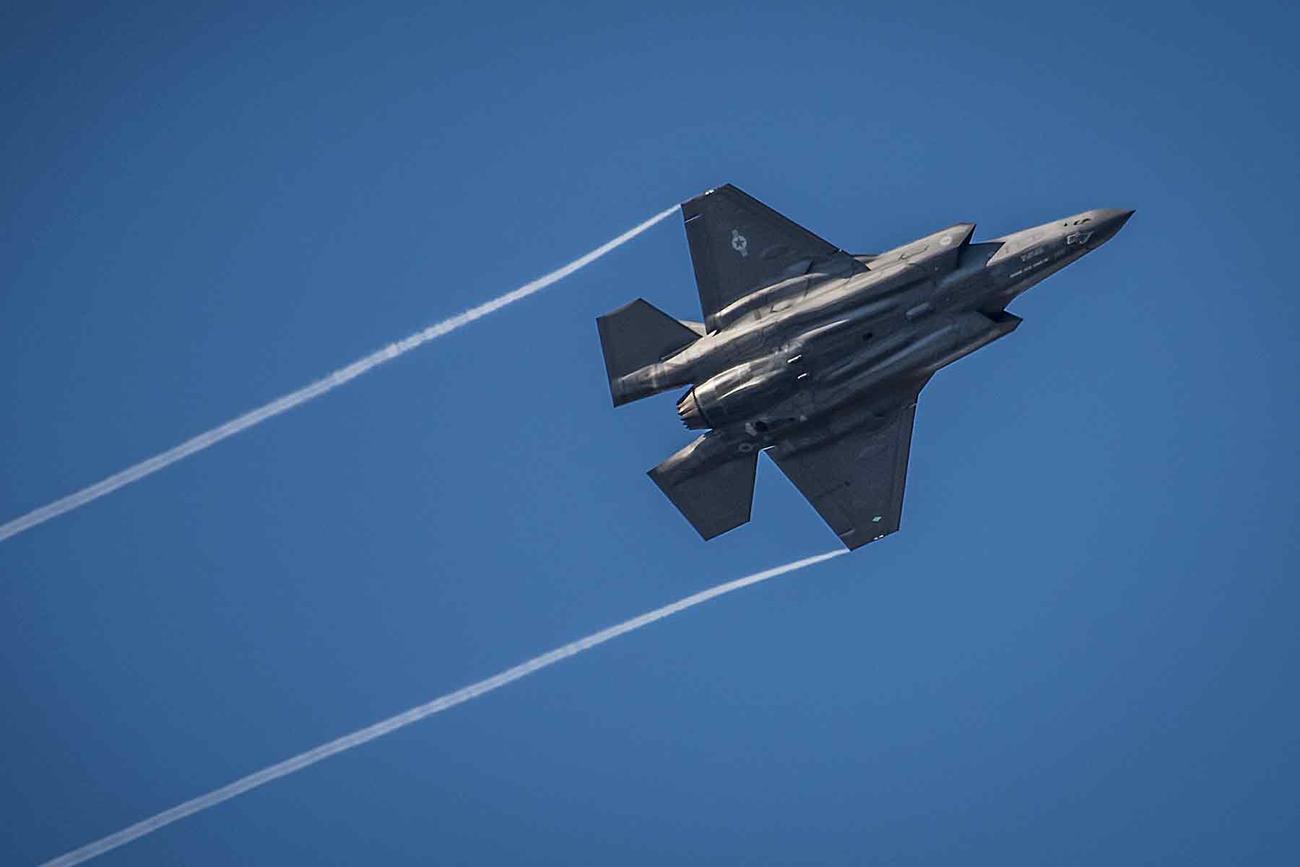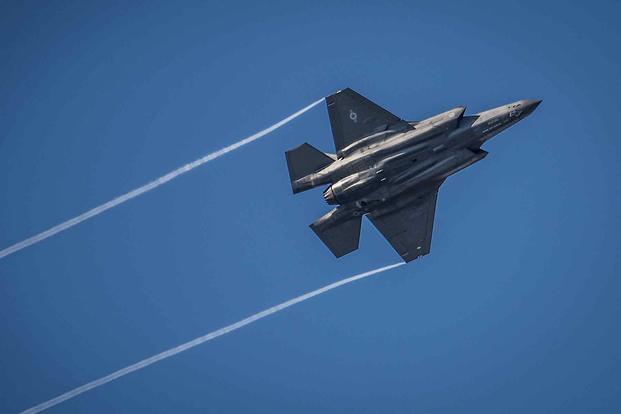

Hundreds of Air Force and Navy planes are being grounded due to a faulty part in their ejection seats, a major safety concern if a pilot needs to eject from the aircraft suddenly.
The issues first became public Tuesday, when the Navy grounded an undisclosed number of F/A-18 Hornets, F/A-18E/F Super Hornets and EA-18G Growlers, as well as T-45 Goshawk and F-5 Tiger II training aircraft.
The service made the decision to ground the planes “after being notified of [a] potential defect by the vendor,” it said. The manufacturer is Martin-Baker, a company in the United Kingdom that specializes in ejection gear for foreign and U.S. aircraft.
Read Next: At Least 9 Helicopters Damaged, Blown Over in Norfolk Storm
Martin-Baker flagged its cartridge-actuated devices — explosive components used to launch an ejection seat out of the cockpit — as the issue. Certain lots of those devices don’t work properly and need to be replaced, according to the company.
But the problem is hitting the Air Force as well.
On Friday, Air Combat Command (ACC) confirmed in a statement to Military.com that it is standing down its fleet of F-35A Lightning II jets due to the Martin-Baker defect. On July 19, it began a 90-day inspection of all the components in its aircraft.
“Out of an abundance of caution, ACC units will execute a stand-down on July 29 to expedite the inspection process,” a statement from the Air Force said. “Based on data gathered from those inspections, ACC will make a determination to resume operations.”
Two days earlier, the 19th Air Force’s Air Education and Training Command was made aware of the ejection seat issue on its T-38 Talon and T-6 Texan II training planes. Martin-Baker also manufactures the ejection devices for those aircraft.
The Air Force identified a total of 279 T-38 and T-6 planes that are affected and ordered a stand-down for those aircraft, meaning they won’t fly until the ejection seats are cleared.
“Out of an abundance of caution, 19th Air Force directed that T-38 and T-6 operations be terminated on July 27 while our maintenance and logistics teams further investigated the issue,” a statement from Air Education and Training Command said. “Working with the manufacturer, AFMC [Air Force Materiel Command] was able to isolate the specific lot numbers of product that require inspection and further identify which aircraft may be affected.”
Maj. Gen. Craig Wills, commander of the 19th Air Force, said the stand-down is necessary to protect the safety of the students and instructors.
“Our actions today were taken out of an abundance of caution in order to ensure the safety of our pilots and aircrew,” Wills said. “We will not return aircraft affected by this issue to the flying schedule until we’re confident their escape systems are fully functional.”
Congress has paid close attention to ejection seat problems after the 2020 death of 1st Lt. David Schmitz, an F-16 Fighting Falcon pilot with the 77th Fighter Squadron out of Shaw Air Force Base, South Carolina. Investigations after his death found that an ejection seat malfunction was partly to blame.
JV Venable, a former Air Force pilot with 25 years of experience and a senior research fellow at the Heritage Foundation, a conservative think tank, said faulty ejection seat cartridges are just the latest example of long-standing issues related to the military’s aging equipment and lack of maintenance preparation.
“This is just one of the many readiness issues that is facing the military right now,” Venable said in an interview. “You’re starting to see the impact of that with these ejection seats.”
Emma Sutcliffe, a spokeswoman for Martin-Baker, told Military.com that the company has not yet issued a statement about the parts issue.
— Thomas Novelly can be reached at [email protected]. Follow him on Twitter @TomNovelly.
Related: Ukraine Official Says Country Doesn’t Want Old American A-10s
© Copyright 2022 Military.com. All rights reserved. This material may not be published, broadcast, rewritten or redistributed.
